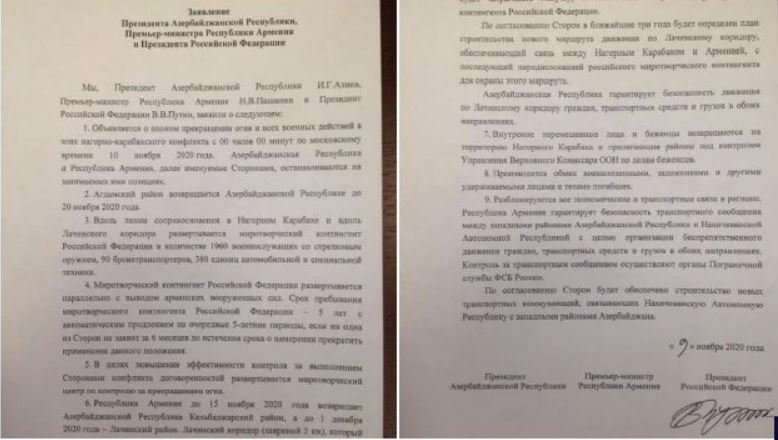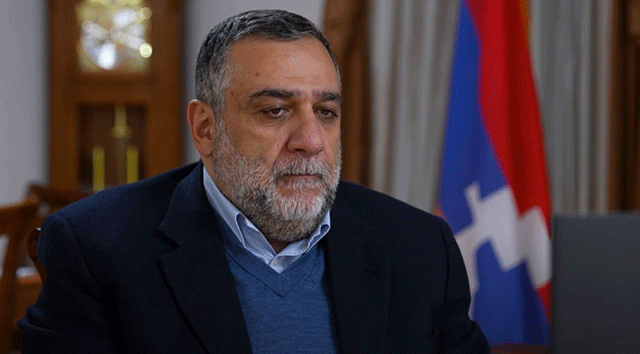“We believe the November 9, 2020 document is an important legal document; no one is allowed to cancel that document. This is a key document for the people living in Artsakh,” said Ruben Vardanyan, Minister of State of the Republic of Artsakh, answering a question related to the November 9 statement during an online meeting by Columbia University. It should be noted that the online discussion titled “Prevention of the Second Armenian Genocide. Azerbaijan continues to block the Lachin Corridor” was initiated by the Peace-building and Human Rights Institute of Columbia University.
Ruben Vardanyan answered the question: Are the self-defense forces of Artsakh deployed along the line of contact, is there a line of contact with the Azerbaijanis, and what does the November 9 document define in this regard? “Being surrounded by Azerbaijan, we have the right to defend ourselves. We have always been in a situation to protect our home, land, our family, and our children. Unfortunately, even after November 9, Azerbaijan continues its provocations, and people cannot engage in animal husbandry and agricultural work in that land.” Ruben Vardanyan answered the question: What physical and psychological impact does the food problem in Artsakh affect the population? “It has a great impact because, for example, children don’t understand why they don’t have fruit, why they can’t eat Snickers. These are simple things that characterize the situation. Of course, this has a great psychological impact, especially on children.” Questions were raised about electricity and gas supply cuts. Ruben Vardanyan presented the situation.
Ruben Vardanyan answered the question: Is Azerbaijan’s agenda to depopulate Artsakh? “I think Aliyev stated very clearly that we see Artsakh without Armenians. The goal of Azerbaijan is ethnic cleansing. That is the goal of the Azerbaijani regime, which has been publicly announced.”
Read also
Despite the crisis, Ruben Vardanyan said his contacts with Artsakh’s people show they are strong. And the authorities of Azerbaijan act like this to preserve their power because there is no democracy in the country, and human rights are not respected. According to Ruben Vardanyan, there is an opportunity to live peacefully, but Armenian hatred and hostility must disappear.
He reminded the two nations lived side by side for hundreds of years; there were mixed marriages, and he even said that 4-5 Azerbaijanis were working in his company in Moscow. According to him, the ordinary Azerbaijani does not want war either. On this occasion, he compared Armenian and Azerbaijani mothers, one of whom visits her son’s grave in Yerablur in Yerevan and the other in Baku. He assured; none of them wants a war.
Tatev HARUTYUNYAN

























































